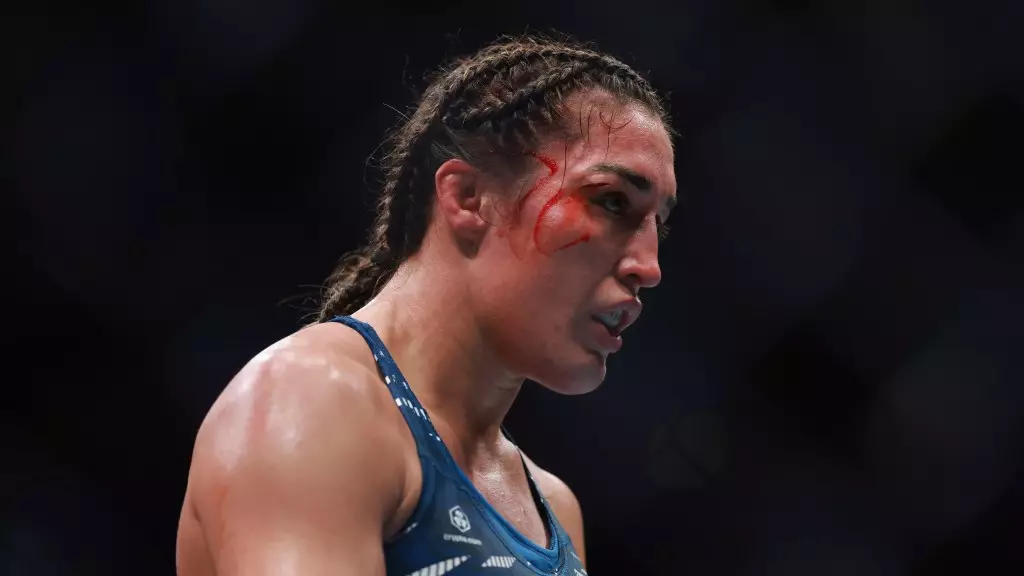Tatiana Suarez faced a challenging match against Zhang Weili at UFC 312, where she suffered a unanimous decision loss, marking a blemish on her career record that now stands at 11-1 in MMA and 7-1 in the UFC. The fight showcased Suarez’s struggles to implement her wrestling-based approach effectively. Despite an early takedown in the first round, she found herself increasingly ineffective as the match progressed. Weili’s striking prowess and tactical superiority overwhelmed Suarez, who was unable to leverage her grappling skills to turn the tide in her favor.
Usman’s Perspective: A Wrestler’s View
Kamaru Usman, a fellow fighter with a distinguished wrestling background, provided a candid assessment of Suarez’s performance. On his podcast, Usman noted the obvious disconnect between the expectations of her performance and the reality observed in the octagon. His thoughts resonate strongly within the community of fighters, many of whom recognize that the transition from wrestling to striking is a critical component in achieving success at the highest levels of mixed martial arts. Usman highlighted the need for Suarez to adapt in order to complement her grappling capabilities with effective striking skills, a crucial realization for fighters aiming for championship status.
Throughout the fight, Usman emphasized a lack of confidence on Suarez’s part during stand-up exchanges. This psychological barrier appeared to inhibit her performance, preventing her from effectively pursuing offensive and defensive strategies against a talented striker in Weili. Usman observed that Suarez’s corner encouraged her to engage in striking, possibly as a means to set up further grappling opportunities. The advice seemed sound in theory; however, Suarez appeared to struggle with its execution. This encounter exposes a significant gap in her fighting strategy that could be detrimental in future bouts if not addressed adequately.
For Suarez, UFC 312 serves as a critical learning experience. While any loss is disheartening, it can also provide invaluable insights into the areas of improvement needed to evolve as a fighter. Usman’s reflections acknowledge her past successes, underscoring the belief that Suarez is indeed capable of greater performance. Moving forward, Suarez must focus on adopting a more versatile fighting style that incorporates effective striking with her wrestling foundation. Recognizing the necessity to bridge these skills not only prepares her for future matchups but could also pave the way for reclaiming her place among the top talents in the strawweight division.
While the outcome at UFC 312 was not what Suarez hoped for, the support and insights from veterans like Usman may guide her in developing a more rounded and dangerous skill set, crucial for her reclaiming momentum in her MMA career.

